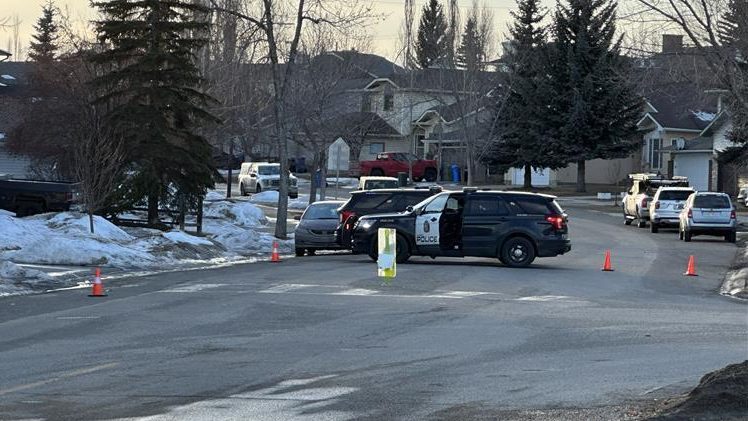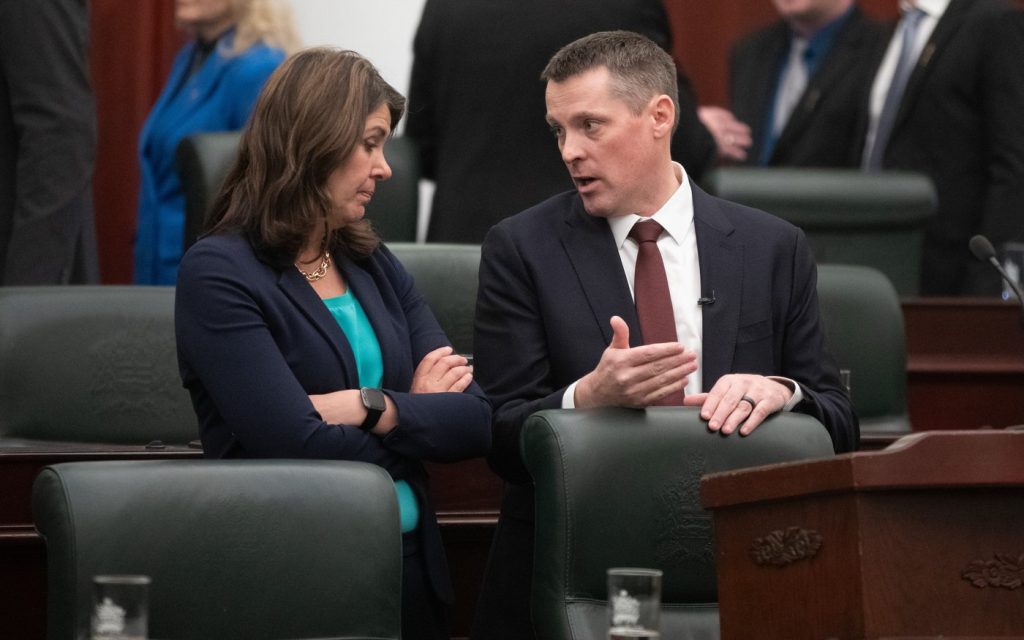Mother of radicalized Calgary man killed in Syria wants to make a difference
Posted Sep 11, 2014 1:59 pm.
This article is more than 5 years old.
CALGARY – A woman whose 22-year-old son was killed while fighting with Islamic extremists in Syria says she doesn’t want her son to have died in vain.
Chris Boudreau of Calgary spoke Thursday at a conference on the radicalization of Muslim youth.
Her son, Damian Clairmont, converted to Islam as a teen and reportedly died in heavy fighting in the city of Aleppo last winter as a member of the militant group Islamic State.
“We need to reach out to youth before they take that last drastic step of going overseas and getting way deeply involved in the trenches out there,” an emotional Boudreau said following her speech.
“Anything I can do to save a life and save a family from going through what we’re going through — I don’t want anyone else to feel that.”
Clairmont found religion at 17 after a depression, Boudreau said. He changed his name to Mustafa al-Gharib. His mother noticed that Islam initially appeared to help and he became peaceful, calm and happy. But as time passed, he became more fundamentalist in his beliefs.
Boudreau said she didn’t see the warning signs at the time, but looking back, they were there.
“There were warning signs when he started talking about conspiracy theories, when he started talking about western media not portraying the truth,” she said.
“He was very proactive and aggressive with regards to his thoughts and opinions, and it may have alerted and concerned me at that point in time at least to reach out and assess the situation.”
Boudreau said the only way she can make it through the day is by thinking she can make a difference.
“I don’t have a choice at this point, I guess. I can’t just leave it. Otherwise how would I wake up in the morning and face my day?
“I’ve got to find some hope in something, that this happened for a reason and that it’s going to lead to change and help somebody.”
Boudreau wants to see a community-based program that works with religious groups and police to provide support and counselling for families who are concerned about the path their children are taking.
She said she has studied a similar program in Germany.
Wegweiser, which means signpost in German, seeks the help of schools, families, religious leaders and job centres to prevent radicalization among Muslim teenagers.
The program sends out social workers who intervene when they see recruiters approaching teenagers on playgrounds, football fields and schoolyards, or when they carry out Islamic conversions on market squares. The workers try to steer young people away from fundamentalism.
Ihsaan Gardee, executive director of the National Council of Canadian Muslims, said community-based programs aren’t always the best way to find isolated and marginalized youth — the ones most at risk of being targeted.
“We have young Canadians who have been affected by this and their families. Given the nature of this phenomenon and the criminal radicalization, there likely isn’t going to be any single magic-potion solution as to how we can best tackle it together,” said Gardee.
“There does not appear to be a single factor that can be pointed to as a catalyst for someone being a positive, contributing member of society to somebody who espouses violent and criminal extremism.”
Gardee said violent extremists are usually coached to maintain anonymity and to avoid detection.
Calgary Police Chief Rick Hanson said finding a way of keeping young people away from bad influences isn’t just the responsibility of law enforcement.
“Too often people will say that’s a police responsibility,” said Hanson. “Part of it is but it’s a community responsibility to prevent this.”
Hanson said there is evidence to suggest that Islamic militants and regular street gangs use similar methods to recruit young people.
“The commonality is in too many cases, our young people do struggle for a way to fit in. They need to feel they belong to something greater than themselves,” he said.
“This is where the wedge is driven — these criminal gangs are recruiting into radical causes. They present themselves as ‘we’re your new family and they’re not.'”
Boudreau said she is not going to give up trying to save those who are being preyed upon. She said she never gave up hope that her son would eventually come home.
“I always kept a piece of me hoping, some way, some how, something would click inside him to make him want to come back home to us. As a parent you always have to keep some sort of hope.”
Her last phone call with him was in June of last year.
“He changed progressively when he was over there. In the beginning it was, ‘I love you, mom, I miss your cooking.’
“Toward the end of it, it was very cold. There was no more ‘I love yous.’ He was just so distant and empty.”
— Follow @BillGraveland on Twitter








